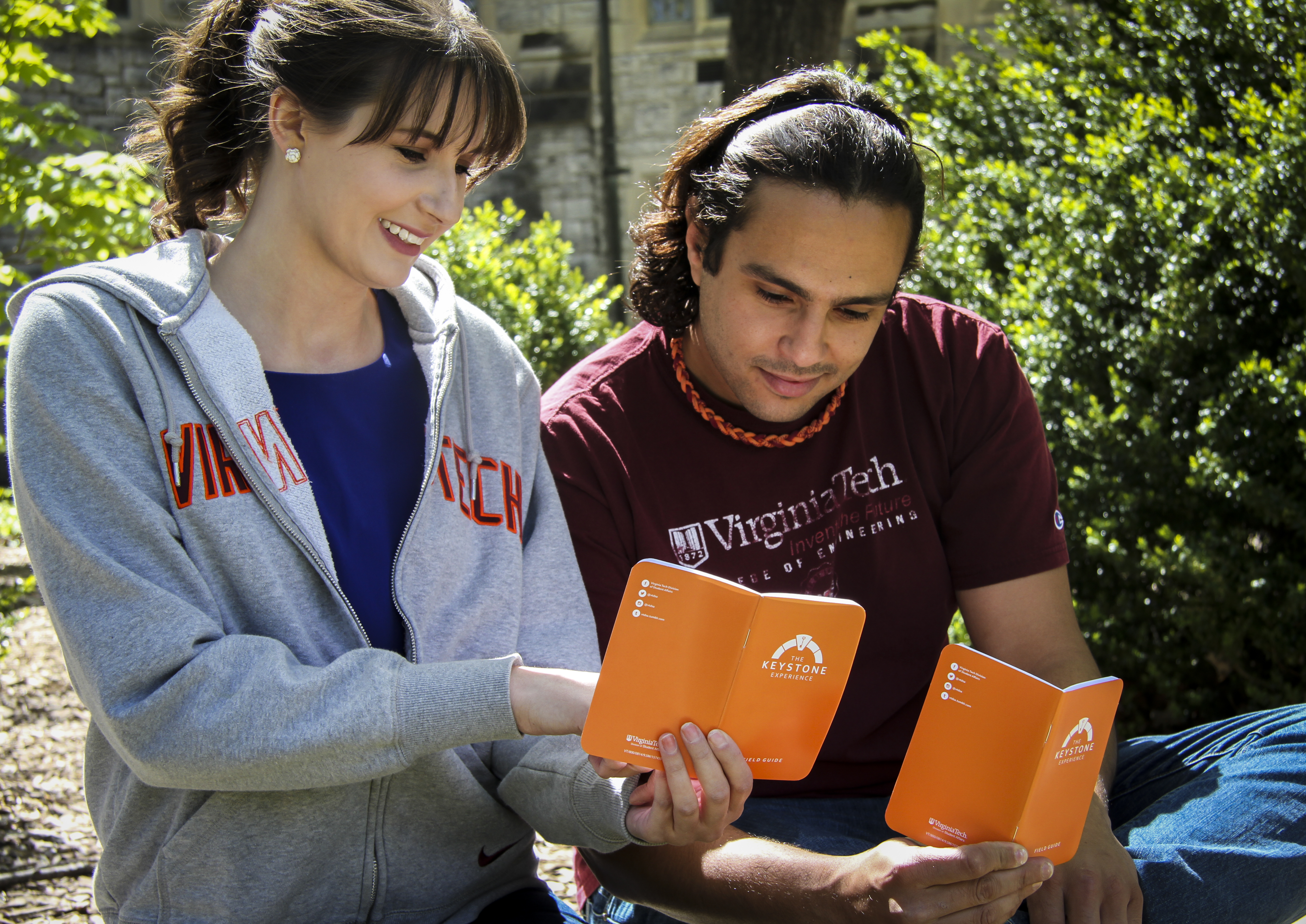Keystone Experience to track Virginia Tech experience for students

Virginia Tech faculty members have long known that education doesn't end when a student leaves the classroom. Far from it.
Every opportunity, event, and activity students pursue helps define who they are and who they will become.
The Keystone Experience, a new co-curricular initiative developed by the Division of Student Affairs, was designed to link students' in- and out-of-classroom experiences and bolster holistic learning experiences. It will be introduced to students as they arrive on campus, providing faculty a new way to help students connect their course work with learning outside of the classroom.
“While the Keystone Experience is designed to be self-directed, and students will choose their own paths, it encourages and allows students to do so via structured and identifiable experiences, reflective opportunities, and the ability to chronicle what is being learned,” said Patricia A. Perillo, vice president for student affairs.
The Keystone Experience, built on the foundation of the university's Aspirations for Student Learning, is composed of everything that occurs during a student’s time at Virginia Tech, from internships, career fairs, and student organizations, to intramural sports, group projects, and everything in between. As our high-achieving students strive to grow and learn, the Keystone Experience will track their progress and provide tangible evidence of their Virginia Tech engagement and learning outside of the classroom.
The Keystone Experience embraces the notion that education continues outside the classroom. Keystone Happenings are intentional learning opportunities students can participate in to better understand their individual strengths, as each "happening" is focused on one or more of the Aspirations for Student Learning.
“These intentional events and opportunities will be the building blocks for a personalized Keystone experience that is pursued and directed by students, but guided and mentored by educators in the Division of Student Affairs,” said Frances Keene, chief of operations and deputy to the senior associate vice president for Student Affairs, who serves as a tri-chair of the Keystone Advisory Group.
The assistance of faculty and staff members from throughout the university will help ensure consistency amongst both in- and out-of-classroom experiences. The Keystone Experience utilizes four important tools in connecting with students:
- GobblerConnect, Virginia Tech’s online student involvement portal, will be the hub of Keystone Happenings. Faculty and staff can create a program, event, or service that can be identified as a Keystone Happening.
- A personal involvement transcript on GobblerConnect will help students track their involvement in Happenings. It will provide a comprehensive record of student involvement and engagement that can be used to reflect on experiences and to create a resume for post-graduation.
- The Keystone Experience Field Guide, provided to all on-campus residents, is a booklet students can use to set goals and reflect on their experiences and strengths. The Field Guide is a handy tool for anyone working with students to track progress and discuss goals. Resident advisors will introduce and engage first-year students in using the Field Guide. A PDF version is available online.
- A mobile Keystone app, available for Apple and Android devices, features an interactive map of campus that displays every Keystone Happening in real time. This newly developed app is integrated with GobblerConnect, and it allows users to locate buildings on campus, search for events, add Happenings to calendars, and share everything to social media.
For more information, contact the Keystone Advisory Group at keystone@vt.edu.
Written by Holly Paulette.




.png.transform/m-medium/image.png)